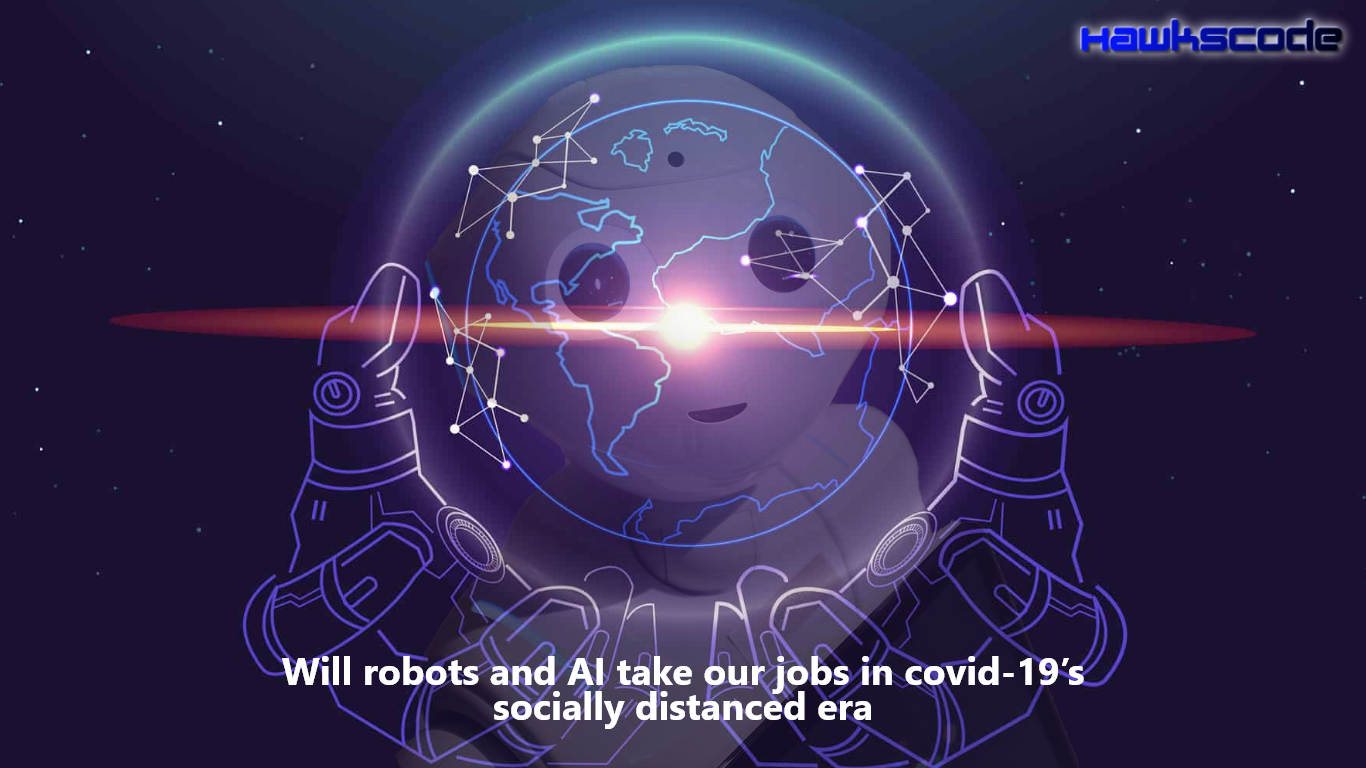Will robots and AI take our jobs in covid-19’s socially distanced era?
In this blog, we will discuss the question: Will robots and AI take our jobs in the COVID-19 socially distanced era? The coronavirus pandemic has accelerated plans for increased automation, robotics, and AI. Should we worry for our jobs, or will we simply get better ones?
Artificial intelligence (AI) will have a fundamental impact on the global labour market in the coming years. This blog will explore the legal, economic, and business issues surrounding AI, including changes in the labour market, company structures, working time, remuneration, working environments, new forms of employment, and labour relations.
Robots Replacing Human Workers
In various locations, you might spot a clothing store bathing its window display in bright light. No alarms sound, and no security guards rush in. The Sunburst UV Bot, with its 1000 watts of UVC light capable of “tearing apart strands of virus DNA,” comes here every night. It also works in several malls and hospitals in Singapore. This is a task that human workers used to do before the COVID-19 pandemic: cleaning.
Similar scenes are playing out globally. In Texan hospitals, Moxi delivers medications, lab samples, and supplies. In Tunisia, P Guard enforces lockdown curfews. James, a telepresence bot, helps Belgian care home residents stay connected. Other robots are cleaning supermarket floors, delivering meals to people in quarantine, and even walking dogs. Non-embodied AI systems are aiding in everything from contact tracing and decoding the coronavirus’s genetic code to managing logistics and customer fulfillment in an increasingly online world.
COVID-19’s Impact on Automation
This trend toward automation and robotics isn’t new, but COVID-19 is accelerating it. “What this pandemic has done is make people extremely aware of hygiene and the need to maintain distance,” says Richard Pak, a researcher at Clemson University in South Carolina. “In these times, robots and automation provide a clear safety benefit.”
The Fear of Job Loss
However, this shift may also bring about major challenges. Unemployment rates have surged as the coronavirus has impacted the global economy. What if we emerge from the COVID-19 recession to find that jobs have permanently disappeared, with no clear plan B to keep people employed?
The Future of Work with Robots
So, what is the solution? Will robots dominate the market, leading to unemployment? While it’s difficult to get robots for small tasks today due to high costs, the future might see us fully relying on robots for these tasks as the technology becomes more affordable.
Conclusion
I hope you enjoyed reading this blog. To learn more, visit HawksCode and Easyshiksha.




